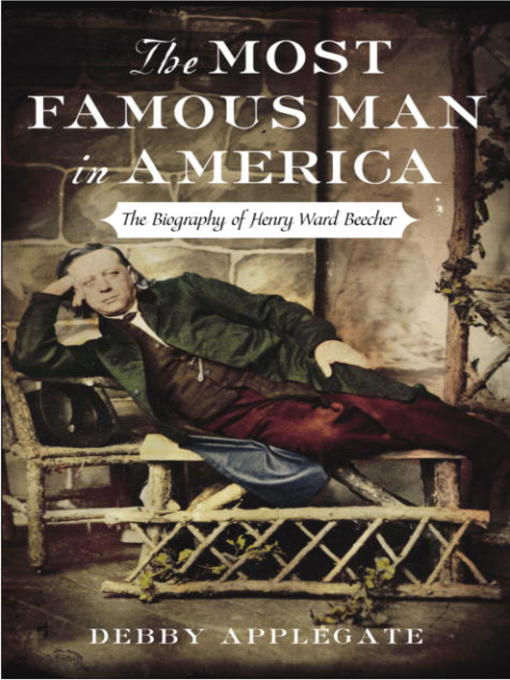
The Most Famous Man in America
The Biography of Henry Ward Beecher
کتاب های مرتبط
- اطلاعات
- نقد و بررسی
- دیدگاه کاربران
نقد و بررسی

April 24, 2006
Now nearly forgotten, Henry Ward Beecher (1813–1887) was an immensely famous minister, abolitionist and public intellectual whose career was rocked by allegations of adultery that made nationwide headlines. In this engaging biography, American studies scholar Applegate situates this curiously modern 19th-century figure at the focus of epochal developments in American culture. Beecher's mesmerizing oratory and fiery newspaper columns made him one of the first celebrities of the nascent mass media. His antislavery politics, though often tepid and vacillating, Applegate argues, injected a note of emotionalism into the debate that—with his sister Harriet Beecher Stowe's Uncle Tom's Cabin
—galvanized Northern public opinion. And by preaching a loving God instead of a wrathful one, the author contends, Beecher repudiated the dour Calvinism of his youth and made happiness and self-fulfillment, rather than sin and guilt, the centerpiece of modern Christian ideology. (The implicit moral anarchy of his creed, critics charged, evinced itself in his sexual indiscretions.) Although marred by occasionally facile psychoanalysis (Applegate describes Beecher, the seventh of 12 siblings, as a classic "middle child" personality), this assessment of Beecher is judicious and critical. Applegate gives an insightful account of a contradictory, fascinating, rather Clintonesque figure who, in many ways, was America's first liberal.

June 1, 2006
Yankee preacher Henry Ward Beecher (1813-87) knew everybody who was anybody, and his Plymouth Church in Brooklyn was a popular tourist attraction. If he was the most famous American, he was also a polarizing figure because of the abolitionism that made him "most hated" in the antebellum South. Overachievement was in his blood: father Lyman was the last great American Puritan minister; most siblings were missionaries, educators, and scholars; and sister Harriet became the most famous woman in the English-speaking world for the novel " Uncle Tom's Cabin." Assuming Lyman's mantle, Henry distinguished himself by preaching unconditional love when most ministers prosecuted biblical literalism. Applegate well evokes Beecher's nineteenth-century milieu while making connections to the present day. Orators were celebrities then, and whereas twentieth-century evangelicals are reputedly anti-intellectual, the Beechers ardently advocated education. Adultery with his best friend's wife led to a sensational trial that irrevocably damaged Beecher's reputation. Applegate sympathetically portrays this larger-than-life figure as appealingly human. (Reprinted with permission of Booklist, copyright 2006, American Library Association.)

























دیدگاه کاربران